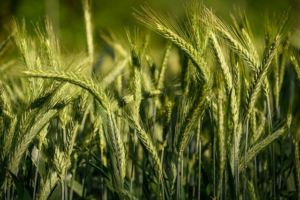Is iron deficiency anemia genetic? – Medical News Today
Iron deficiency anemia is a condition in which there are insufficient red blood cells in the body due to a lack of iron. In some cases, iron deficiency anemia can be genetic, as alterations in a person’s genetic code can pass to their child.
The common causes of iron deficiency anemia include dietary factors, blood loss, and underlying health conditions.
When doctors diagnose iron deficiency anemia, they will confirm the cause so that they can determine the b…….

Iron deficiency anemia is a condition in which there are insufficient red blood cells in the body due to a lack of iron. In some cases, iron deficiency anemia can be genetic, as alterations in a person’s genetic code can pass to their child.
The common causes of iron deficiency anemia include dietary factors, blood loss, and underlying health conditions.
When doctors diagnose iron deficiency anemia, they will confirm the cause so that they can determine the best course of treatment.
Read more to learn about the link between genetics and iron deficiency anemia.
Blood-related genetic abnormalities can pass from a person to their child. In some cases, these abnormalities may cause iron deficiency anemia.
Doctors call this genetic form iron-refractory iron deficiency anemia (IRIDA). This rare condition stems from a deficiency of iron in the bloodstream.
The symptoms of IRIDA may appear similar to those of other forms of anemia, but they may not respond to treatments in the same way.
IRIDA is a hereditary condition that results from changes to the TMPRSS6 gene. This gene is responsible for giving the body instructions on creating a protein called matriptase-2.
Matriptase-2 helps with regulating iron in the body. Factors that affect this protein can alter the levels of iron in the body.
IRIDA has an autosomal recessive inheritance pattern, which means that both parents must have the recessive trait, and the child must receive both copies.
As each parent carries only one copy of the recessive trait, it is possible that neither will have any symptoms.
The symptoms of IRIDA are similar to those of other forms of anemia, but they tend to be mild.
Common anemia symptoms include:
- fatigue
- weakness
- pale skin
- shortness of breath
- fast heartbeat
- orthostatic hypertension, which causes dizziness when moving from sitting to standing
- pica, which refers to cravings for nonfood items
- changes to the skin, hair, or nails
- headaches
- difficulty concentrating
IRIDA should not interfere with a child’s growth. The Genetic and Rare Diseases Information Center (GARD) notes that growth and development in children with IRIDA are usually normal.
Confirming a diagnosis of IRIDA can take time. Doctors will first order blood tests such as a complete blood count (CBC) to check for signs of general iron deficiency anemia. They will then carry out other tests to determine the underlying cause.
If a …….
Source: https://www.medicalnewstoday.com/articles/can-iron-deficiency-anemia-be-genetic







